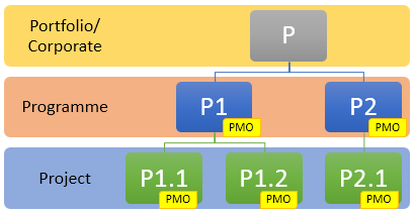
Such activities above formed the foundation of a PMO and nothing flawed about it. When a PMO possess such visibility and influence over projects, its latent of become a strategist in an organization is often overlooked and undermined.
The basic tasks of a Strategist PMO are:-
1. Project Selection
When an organization is presented with many opportunities, it is equally vital to select right prospects/ projects that able bring an organization closer to its strategic goals. Shortlisted prospects will be evaluated to ensure its viability and feasibility.
For example, an organization wanted to introduce complete Project Management system, it needs to ensure the deliverable of its turnkey software development projects are able to become a complete Project Management system. Otherwise, the organization need to invest separately to materialize its goal.
2. Project Evaluation
Evaluation comprises of both technical viability and financial feasibility. The ultimate focus is on the financial feasibility of a project. Because the results of technical viability study will be translated to dollars and cents.
Among those financial evaluation methods are average rate of return, internal rate of return (IRR), net present value (NPV), and payback period. Cost of capital (cost involved in getting funding) is part of this evaluation.
3. Project Prioritization
Shortlisted prospects/ projects are prioritized with others prospects and existing projects. Every organization has limited capability to run certain number of projects. Thus, prioritization of projects is certainly unavoidable. In this exercise, some prospects/ projects have to be dropped or terminate prematurely.
When an existing project will be replaced, its salvaged value and adversarial impacts need to be seriously evaluated and handled. This premature closure entails severe impacts to its respective stakeholders, such as clients and project team. Thus, the success of replacement rely on the maturity of an organization and the effort of change management.
What's Next
In order to protect interest of an organization and remove favoritism, PMO has better position to objectively select, evaluate and prioritize the prospects/ projects. The existence of projects is heavily influenced by political landscape. Such Strategist PMO should reports directly to Board of Directors and not to single person. The PMO Head plays utmost critical role to ensure its objectivity.
Now you can take a step back to think how to nurture the strategist within your PMO.
- Formulate or revise Business Case - outline authority and accountability of Strategist PMO
- Solicit right candidate as PMO Head - ideally this person should possess strong knowledge of PMO and industry knowledge/ experience
- Communicate the Business Case of Strategist PMO - prepare everyone to accept this newly arrived strategist
- Regularly monitor performance - this is ensure this strategist is properly nurtured with right support within organization





 RSS Feed
RSS Feed


